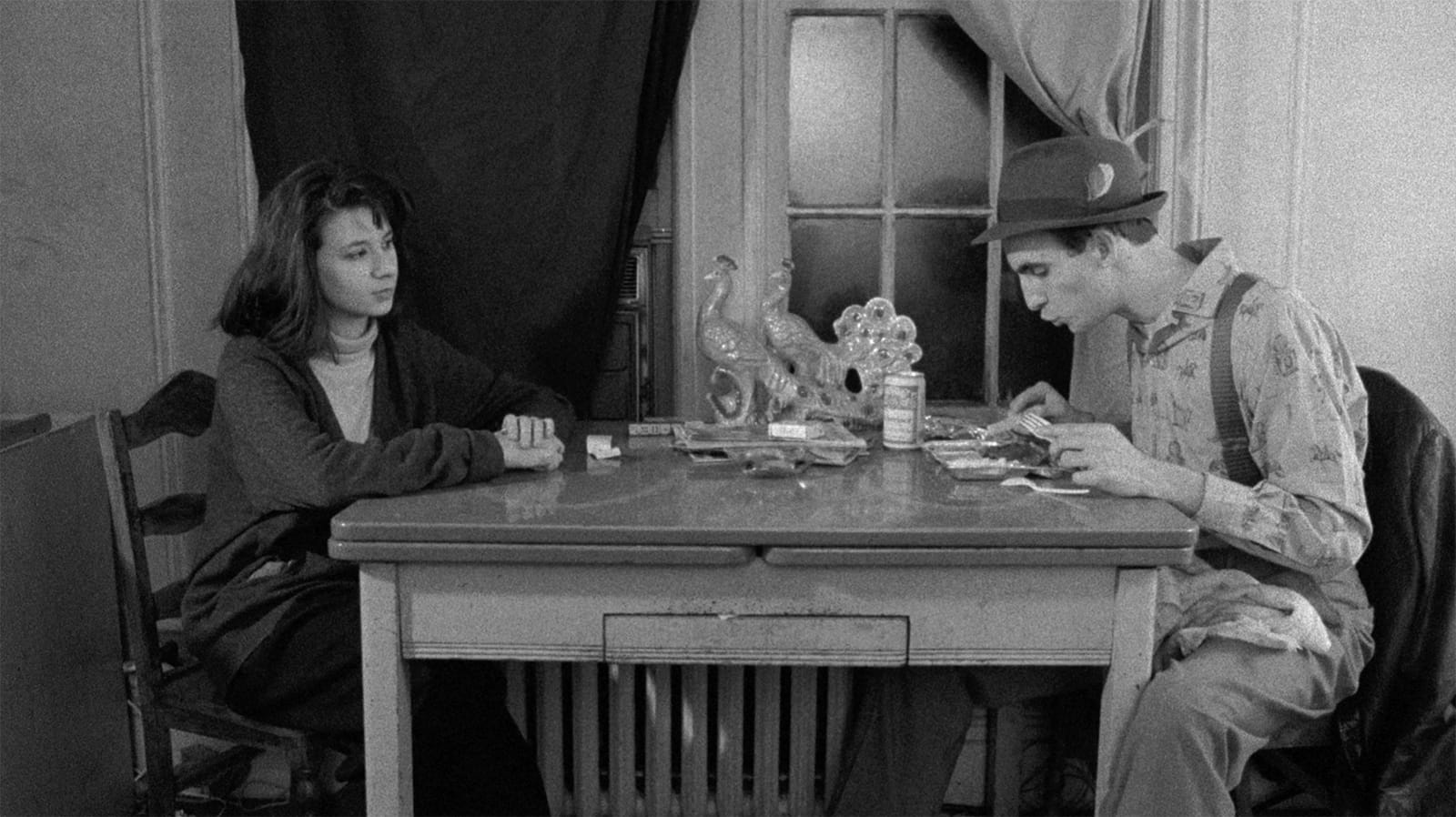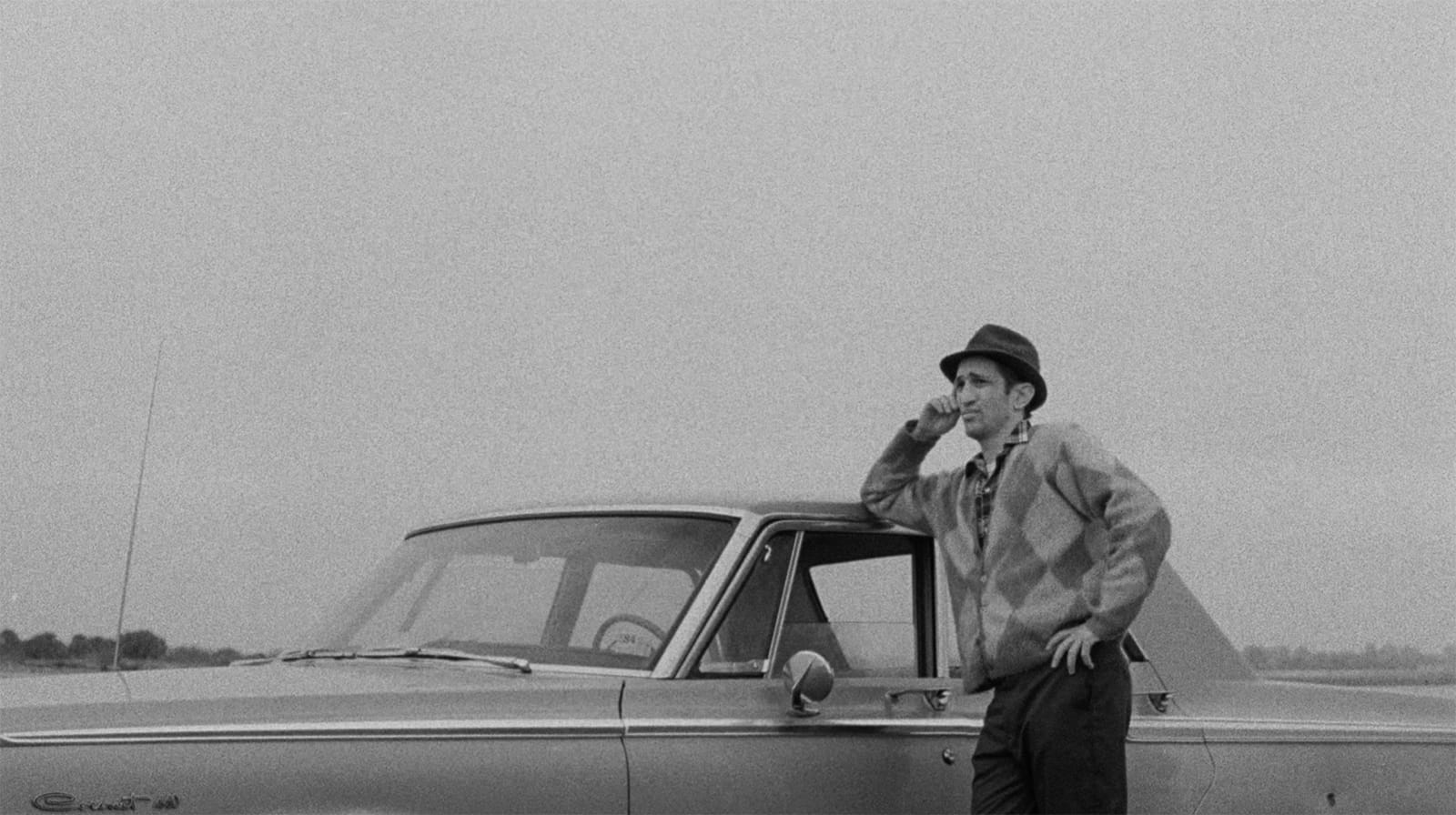Paradise Regained

It came from nowhere, it’s always been here—or so Stranger Than Paradise might seem.
Jim Jarmusch had completed his first feature, Permanent Vacation, in 1980 and spent the next four years working on his second. Screened a few times as a fragment, Stranger Than Paradise was finished and premiered at the Cannes Film Festival just before the dismal summer of ’84: New Morning in America, Ronald Reagan running for reelection. Reagan had his paradise—and Jarmusch?
As modest and self-contained as it is rich and distinctive, Jarmusch’s remarkable synthesis crossed film-school cinephilia with downtown club culture. Jarmusch had studied with Nick Ray at NYU and assisted Wim Wenders on his portrait of Ray, Lightning over Water; he played with a “no wave” band called the Del-Byzanteens and hung out with the crazy Hungarian expats at Squat Theater. Those were the days when the B-52s were regulars at CBGB, when Max’s Kansas City showed Super 8 punk movies, when Nan Goldin’s epic autobiographical slide show was an underground event at the UP Cinema and Ann Magnuson was organizing “Flintstones” evenings at Club 57.
On one hand, Stranger Than Paradise is one of the purest expressions of a sensibility that developed in Lower Manhattan’s clubs and lofts during the late seventies and early eighties; on the other, Jarmusch’s movie belongs to a particular eighties tendency in which all manner of immigrants, extraterrestrials, mermaids, time travelers, and suburban-born SoHo artists—in a word, aliens—dropped in on America and, like our Hollywood President, served to validate it for us. But where the previous year’s independent blockbuster Liquid Sky, made by an inspired gang of Russian émigrés, shed an authentically alien perspective on the same milieu, Stranger Than Paradise was unaccountably sweet.
No less than Steven Spielberg’s adorable extraterrestrial or Robin Williams’s cuddly Russian or Eddie Murphy’s African potentate, Stranger Than Paradise’s Eva receives an American education. Unlike ET, however, Eva hasn’t landed in the San Fernando Valley. Rather than American suburbia, she finds herself somewhere in the vicinity of Robert Frank’s The Americans. Stranger Than Paradise gives us America as the perfect expression of everyone’s alien nation. Seldom has a movie been more fun to describe, as I had the good fortune to in the October 2, 1984, issue of the Village Voice. That piece follows.
AMERICANA, RIGHT AND WRONG
After a decade of scattershot publicity and frantic grant hustling, European accolades and erratic distribution, the so-called independent cinema has become the third force in American narrative film. Outflanking the new Hollywood as well as the old, low-budget indies have provided the R&D for recent releases as disparate as Beat Street, Swing Shift, Under Fire, and Yentl (not to mention Zelig). Documentary has been the independents’ strong suit, but, finally, they’re making features that can hold their own with movies produced anytime, anyplace, by anybody. Take, for example, Jim Jarmusch’s Stranger Than Paradise, winner of the Caméra d’or at Cannes last May.
A downbeat pastoral just this side of sentimental, Stranger Than Paradise is a celebration of hanging out, bumming around, and striking it rich—American (pre)occupations as deep-dyed as they are disreputable. The film, which plays the [New York] Film Festival this weekend and the Cinema Studio thereafter, is a stringent road movie cum character farce, with a trio of lumpen bohemians—a teenage immigrant from Budapest, her Americanized cousin, and his affable buddy—boldly emblazoned upon a series of gloriously deadbeat landscapes (the Lower East Side, the outskirts of Cleveland, the anonymous Florida coast). It’s very funny, and it’s pure movie. No one will ever mistake this deadpan whatsit for a failed off-off-Broadway play.


